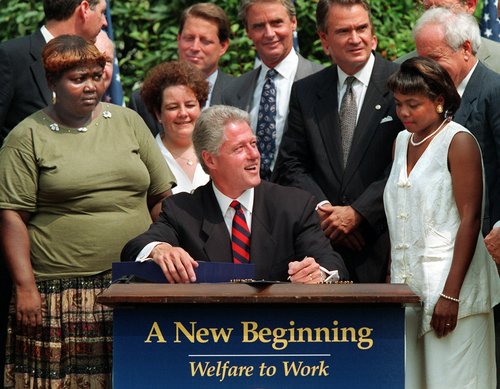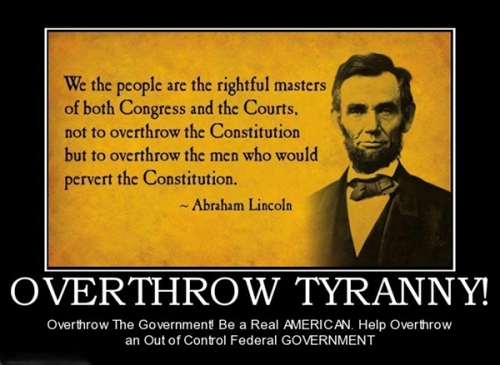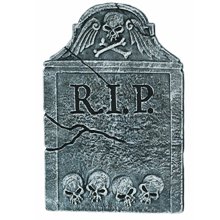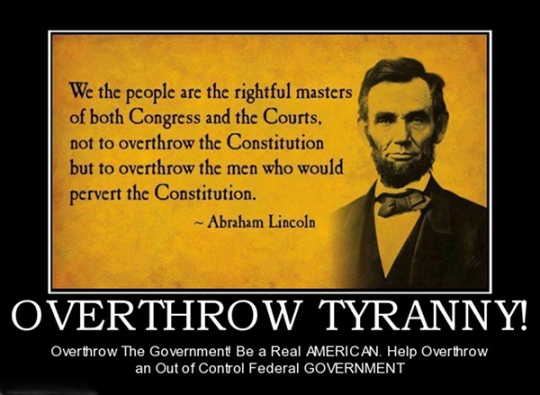The Homeless Dads: The Bad Deal Divorce
John McElhenney still tries to see the balance in his divorce decree. But after losing everything twice, he’s convinced we men need to fight for equal consideration after the marriage has ended.
 The typical divorce is actually pretty painful. The standard DEAL is almost an assault to fatherhood, and we need to fight to change it. In the most common arrangement, Mom gets the kids and house, dad gets the child support payment. It’s how things used to work. But today, unfortunately, the courts still go by this structure unless there is significant fight to something difference.
The typical divorce is actually pretty painful. The standard DEAL is almost an assault to fatherhood, and we need to fight to change it. In the most common arrangement, Mom gets the kids and house, dad gets the child support payment. It’s how things used to work. But today, unfortunately, the courts still go by this structure unless there is significant fight to something difference.
There are a few problems with this pattern.
 The non-custodial parent is assumed to be a deadbeat when they are calling the AG’s office. You are segmented into custodial or non-custodial parent at the beginning. If you are the non-custodial parent the only reason you’d be calling is you are behind on your child support.
The non-custodial parent is assumed to be a deadbeat when they are calling the AG’s office. You are segmented into custodial or non-custodial parent at the beginning. If you are the non-custodial parent the only reason you’d be calling is you are behind on your child support.
When we complain about unavailable dads, or dads that check-out after divorce, here are a few of the reasons why.
- The child support burden is a lot of money.
- Dads might be resentful of the “money only” role they are being put in.
- When dad is asked to leave the marital home they are often forced to move in with family members or friends, this is largely because of the cost of child support.
- In addition to $500+ per kid in child support (estimate) the dad is also asked to pay for health insurance. (Today, in my case this is an additional $1,200 per month with two kids.
 So let’s see, I’ve got no home. I’m paying $1,200 a month for child support and $1,200 a month for health care. How can I afford an apartment? If I don’t have a killer job ($2,400 after tax expenses before I get a dollar for myself or my survival. Well, that’s a pretty steep hill to climb.
So let’s see, I’ve got no home. I’m paying $1,200 a month for child support and $1,200 a month for health care. How can I afford an apartment? If I don’t have a killer job ($2,400 after tax expenses before I get a dollar for myself or my survival. Well, that’s a pretty steep hill to climb.
IF the playing field were equal, I would guess a lot more divorces would be negotiated in good faith. Today, even if you declare a collaborative divorce, the issue of money is liable to strike the dad in the pocketbook in a way the mom, to start out with, does not even have to consider. RARE is the case where the dad is given full custody and the mom pays child support.
Shouldn’t we start with 50/50 in both financial responsibility AND parenting time? This is the fight we are fighting in the courts today. I’m considering going back to court to reset the arrangement. I was attempting a collaborative divorce, but in the end I was handed this lopsided deal. I have to earn over $3,000 per month (taking taxes out BEFORE I pay the mom) before I have a chance at even putting food on the table.
 This leaves a lot of dads as deadbeats, not because they are actually trying to shirk their responsibility, but because the mom and the court have saddled them up with so much financial liability that they cannot afford to make the payments each month. At that point the dad is subject to financial liens, foreclosure, and checking account freezes.
This leaves a lot of dads as deadbeats, not because they are actually trying to shirk their responsibility, but because the mom and the court have saddled them up with so much financial liability that they cannot afford to make the payments each month. At that point the dad is subject to financial liens, foreclosure, and checking account freezes.
You know what happens when the AG’s office freezes your account?
- The bank charges you $57 – $150 for the freeze.
- The bank processes no further payments (rent, car payments, even your child support payments)
- You bounce checks.
- You’re credit get’s screwed.
- You end up with an additional $200 – $400 in fees.
And you know what the AG’s officer will tell you? (The Humans Of Divorce, Dear AG’s Office Special Cases Officer Mr. McK!)
 Fair treatment of fathers begins at the beginning of the relationship. BEFORE you have kids, you can agree to parent 50/50. If that’s the deal, you should have the discussion about if things don’t work out. (I’m not talking prenuptial, just an understanding) In my marriage we started out 50/50, but as soon as she decided she wanted a divorce (yes, it was her idea) the arrangement went to the cutting floor and I was handed the dad deal. A bad deal for everyone.
Fair treatment of fathers begins at the beginning of the relationship. BEFORE you have kids, you can agree to parent 50/50. If that’s the deal, you should have the discussion about if things don’t work out. (I’m not talking prenuptial, just an understanding) In my marriage we started out 50/50, but as soon as she decided she wanted a divorce (yes, it was her idea) the arrangement went to the cutting floor and I was handed the dad deal. A bad deal for everyone.
As the dad can’t afford a nice place for the kids to come visit, they want to come visit less. As mom’s house maintains some of its status and comfort (important for the kids) the dad is left in the cold to fend for himself AFTER he makes all the payments to help the mom stay in the house and live within the lifestyle the couple achieved TOGETHER. Except now it’s not together. And the cooperation you started with before you had kids, becomes a longterm ground war between “the money you owe me” and the money you can afford to pay without suing your ex.
Dad’s are just as important as moms. Even with young kids, the loss of either parent (my dad left when I was 5) is on of the most painful aspects of divorce. For the dad it is doubly devastating: the no longer have a house, and the courts and the AG’s office have now put their credit at risk, making employment and ability to pay even more difficult.
Consider the dads. If you’re a dad consider the courts and get an attorney who can show you examples of winning in court for fair arrangements.
 The money after divorce should be divided equally. Anything else puts man men at risk for debit issues, credit issues, and put them at risk of suicide and depression. Let’s put the balance back in divorce. Give both parents the benefit of the doubt. And both parents should be advocating for a 50/50 split in the same spirit they entered parenthood, with expectations of a 50/50 partnership. That partnership doesn’t end at divorce. But if we load up the man with all of the financial obligations and punish him for being late on a payment or two, we are hurting all the members of the family. The mom loses when the dad’s account is frozen. Even if the mom didn’t want it to happen. Once you’ve asked the AG’s office into your divorce, they never leave. (Inviting the Dinosaur Into Your Divorce)
The money after divorce should be divided equally. Anything else puts man men at risk for debit issues, credit issues, and put them at risk of suicide and depression. Let’s put the balance back in divorce. Give both parents the benefit of the doubt. And both parents should be advocating for a 50/50 split in the same spirit they entered parenthood, with expectations of a 50/50 partnership. That partnership doesn’t end at divorce. But if we load up the man with all of the financial obligations and punish him for being late on a payment or two, we are hurting all the members of the family. The mom loses when the dad’s account is frozen. Even if the mom didn’t want it to happen. Once you’ve asked the AG’s office into your divorce, they never leave. (Inviting the Dinosaur Into Your Divorce)
We need fair divorce laws. We need courts that will listen to the needs of both parents and consider 50/50 parenting as the desired outcome. Until we stand up and fight for equality AFTER marriage we will continue to be on the losing side of the post-marriage equation.
 Many states have opted for oppression when it comes down to child support debt. A few wiser minds are prevailing in a few places. When the state of Maryland wanted to reach dads who were behind on their child support payments, it started in the boarded-up blocks of West Baltimore, in neighborhoods marked by drugs, violence and unemployment.
Many states have opted for oppression when it comes down to child support debt. A few wiser minds are prevailing in a few places. When the state of Maryland wanted to reach dads who were behind on their child support payments, it started in the boarded-up blocks of West Baltimore, in neighborhoods marked by drugs, violence and unemployment. “So even if we use taxpayer dollars to chase ’em down, and we catch ’em, right, and we go into their pockets, there’s nothing in there,” says Joe Jones of Baltimore’s Center for Urban Families.
“So even if we use taxpayer dollars to chase ’em down, and we catch ’em, right, and we go into their pockets, there’s nothing in there,” says Joe Jones of Baltimore’s Center for Urban Families. Like a growing number of state government officials, Maryland’s DiPrimio wanted to make parents an offer. But he needed their trust, and that was a problem.
Like a growing number of state government officials, Maryland’s DiPrimio wanted to make parents an offer. But he needed their trust, and that was a problem. To break through years of distrust, Maryland sent letters to parents with the logo of the Center for Urban Families, a nonprofit in West Baltimore that provides job training and other help to poor families.
To break through years of distrust, Maryland sent letters to parents with the logo of the Center for Urban Families, a nonprofit in West Baltimore that provides job training and other help to poor families. Response has been slow. In two years, slightly more than 100 parents have signed on. Many of them attend fatherhood meetings like one held on a recent Wednesday night. Two dozen men — 20-something to middle age, in sweats and in suits — sit in a large square.
Response has been slow. In two years, slightly more than 100 parents have signed on. Many of them attend fatherhood meetings like one held on a recent Wednesday night. Two dozen men — 20-something to middle age, in sweats and in suits — sit in a large square. The Obama administration wants to “right size” child support orders from the start, and has proposed regulations to make sure they are set according to what parents actually earn. Officials say some jurisdictions base orders on a full-time minimum wage, even if a parent earns far less. They say this can backfire, leaving so little money after a parent’s wages are garnished that he or she quits and works underground instead.
The Obama administration wants to “right size” child support orders from the start, and has proposed regulations to make sure they are set according to what parents actually earn. Officials say some jurisdictions base orders on a full-time minimum wage, even if a parent earns far less. They say this can backfire, leaving so little money after a parent’s wages are garnished that he or she quits and works underground instead.
 ONE KIND OF FAMILY is the one in an old greeting-card picture: two parents, one or more kids, all under one roof.
ONE KIND OF FAMILY is the one in an old greeting-card picture: two parents, one or more kids, all under one roof. A central character in that narrative is the “deadbeat dad,” a figure who emerged in American culture in the 1980s. One moment served as a catalyst: In 1986, Bill Moyers interviewed a New Jersey father of six named Timothy McSeed for a CBS report titled “The Vanishing Family: Crisis in Black America.” McSeed bragged on camera about his “strong sperm,” and cheerfully admitted he didn’t support any of his children financially because “I’m not doing what the government does.” Editorial columnists seized on the shocking interview, and the segment went viral in a time when that meant more than a few easy clicks: Requests for the tape poured into CBS, including an order for all 7,500 schools in the California public school system. CBS News said it was the largest-ever demand for one of its products.
A central character in that narrative is the “deadbeat dad,” a figure who emerged in American culture in the 1980s. One moment served as a catalyst: In 1986, Bill Moyers interviewed a New Jersey father of six named Timothy McSeed for a CBS report titled “The Vanishing Family: Crisis in Black America.” McSeed bragged on camera about his “strong sperm,” and cheerfully admitted he didn’t support any of his children financially because “I’m not doing what the government does.” Editorial columnists seized on the shocking interview, and the segment went viral in a time when that meant more than a few easy clicks: Requests for the tape poured into CBS, including an order for all 7,500 schools in the California public school system. CBS News said it was the largest-ever demand for one of its products. Men have been honestly caring for their children from the beginnings of civilization. Some have not, including mothers. It has always been that way. We don’t live in a perfect world. Enter the modern state in all its’ wisdom, where all people are expected to tolerate a state-controlled legalized extortion racket because children are the future – but mostly for benefit of the state. The state even routinely combs through bank records in the eternal vanity of finding a few stray bucks from those that dare to evade child support collection. It’s an old game whose influence has steadily increased since the free love movement, when rancorous feminists began burning their bras and politicians saw the political cache they could achieve through social manipulation. As a result, the real role of fatherhood and the definition of a family has been continually cheapened.
Men have been honestly caring for their children from the beginnings of civilization. Some have not, including mothers. It has always been that way. We don’t live in a perfect world. Enter the modern state in all its’ wisdom, where all people are expected to tolerate a state-controlled legalized extortion racket because children are the future – but mostly for benefit of the state. The state even routinely combs through bank records in the eternal vanity of finding a few stray bucks from those that dare to evade child support collection. It’s an old game whose influence has steadily increased since the free love movement, when rancorous feminists began burning their bras and politicians saw the political cache they could achieve through social manipulation. As a result, the real role of fatherhood and the definition of a family has been continually cheapened. In the corporation known as the United States, the system routinely oppresses fathers, while offering poverty support to single and divorced mothers (and some fathers). They have also been oppressing the taxpayer as well, hoping and pretending to bring in more than they spend, even as they send state corporations double their child support collections. Only the light-headed politicians of the United States would think to do such a thing. Of course, these are the same men and women that fund operations as the “policeman of world” while playing “Uncle Sugar” to the world. They even continue to send China a regular stipend because of its’ poverty, while running a burgeoning deficit that the children of the future are expected to pay. This is obviously unsustainable, despite the fact that they indirectly operate the printing presses that prop up the reserve currency of the world. In fact, this is the only reason that the lawmakers that rule “Uncle Sugar” can continue to operate as they have. The nation as it stands is living on borrowed time.
In the corporation known as the United States, the system routinely oppresses fathers, while offering poverty support to single and divorced mothers (and some fathers). They have also been oppressing the taxpayer as well, hoping and pretending to bring in more than they spend, even as they send state corporations double their child support collections. Only the light-headed politicians of the United States would think to do such a thing. Of course, these are the same men and women that fund operations as the “policeman of world” while playing “Uncle Sugar” to the world. They even continue to send China a regular stipend because of its’ poverty, while running a burgeoning deficit that the children of the future are expected to pay. This is obviously unsustainable, despite the fact that they indirectly operate the printing presses that prop up the reserve currency of the world. In fact, this is the only reason that the lawmakers that rule “Uncle Sugar” can continue to operate as they have. The nation as it stands is living on borrowed time. The family is only a family as long as the family unit is together. Once breached by rejection, separation and divorce, a family is not a family at all – especially outside of a committed relationship. That a single mother and her child is a real family is also debatable. The “wise men” of the nation have simply continued to revise the definition of the family to suit their needs. That is the deeper reality that the state would have you ignore to your continued peril. It benefits them for you to believe as you do.
The family is only a family as long as the family unit is together. Once breached by rejection, separation and divorce, a family is not a family at all – especially outside of a committed relationship. That a single mother and her child is a real family is also debatable. The “wise men” of the nation have simply continued to revise the definition of the family to suit their needs. That is the deeper reality that the state would have you ignore to your continued peril. It benefits them for you to believe as you do.
 As you’re reading this, consider the tyranny of the current child support regime in the United States and other modernized countries. Of course, these tyrants are also trying to finger you as they seek to take away any presumption of civil rights and any due process that a human being should have. That is the world we are living in. Only you can begin to change it, by banding together…
As you’re reading this, consider the tyranny of the current child support regime in the United States and other modernized countries. Of course, these tyrants are also trying to finger you as they seek to take away any presumption of civil rights and any due process that a human being should have. That is the world we are living in. Only you can begin to change it, by banding together… Anxiety over a project at work… a marital spat… financial trouble… health problems… the list of potential stressors is endless, but wherever your stress is coming from, it likely starts in your head.
Anxiety over a project at work… a marital spat… financial trouble… health problems… the list of potential stressors is endless, but wherever your stress is coming from, it likely starts in your head. You know the saying “when it rains, it pours”? This is a good description of chronic stress in your body, because it makes virtually everything harder. The term psychological stress is, in fact, misleading, because no stress is solely psychological… it’s not all in your head.
You know the saying “when it rains, it pours”? This is a good description of chronic stress in your body, because it makes virtually everything harder. The term psychological stress is, in fact, misleading, because no stress is solely psychological… it’s not all in your head. Police officers clearly face amplified stress on the job, and researchers found they were 21 times more likely to die of a heart attack during an altercation than during routine activities. This isn’t entirely surprising until you compare it to heart-attack risk during physical training, which increased only seven fold.
Police officers clearly face amplified stress on the job, and researchers found they were 21 times more likely to die of a heart attack during an altercation than during routine activities. This isn’t entirely surprising until you compare it to heart-attack risk during physical training, which increased only seven fold. People who grow up in poor socioeconomic conditions have higher levels of inflammatory markers, including interleukin-6 (IL-6) and C-reactive protein (CRP). They’re also twice as likely to develop type 2 diabetes as adults, a risk researchers say is partly due to the elevated inflammation.
People who grow up in poor socioeconomic conditions have higher levels of inflammatory markers, including interleukin-6 (IL-6) and C-reactive protein (CRP). They’re also twice as likely to develop type 2 diabetes as adults, a risk researchers say is partly due to the elevated inflammation. Digestive problems made Dr. Sapolsky’s list above, which makes sense because the stress response causes a number of detrimental events in your gut, including:
Digestive problems made Dr. Sapolsky’s list above, which makes sense because the stress response causes a number of detrimental events in your gut, including: Stress is implicated in cancer, not so much as a cause of cancer but because it seems to fuel its growth (or interfere with processes that might otherwise slow it down). For instance, the stress hormones norepinephrine and epinephrine encourage the growth of blood vessels that help prostate tumors to grow. Meanwhile, in women with pelvic growths (who were awaiting tests to see if the growths were cancerous or benign), those with good social support (and presumably therefore less stress) had more immune attack cells directed at the masses, Science News reported.
Stress is implicated in cancer, not so much as a cause of cancer but because it seems to fuel its growth (or interfere with processes that might otherwise slow it down). For instance, the stress hormones norepinephrine and epinephrine encourage the growth of blood vessels that help prostate tumors to grow. Meanwhile, in women with pelvic growths (who were awaiting tests to see if the growths were cancerous or benign), those with good social support (and presumably therefore less stress) had more immune attack cells directed at the masses, Science News reported. In a perfect world, all children would grow up in secure, loving families with a mom and dad, good role models and plenty of love. Alas, the world is not perfect. And the less perfect it becomes, the worse it is for all of us, not only those who are trapped into despair, poverty and neglect.
In a perfect world, all children would grow up in secure, loving families with a mom and dad, good role models and plenty of love. Alas, the world is not perfect. And the less perfect it becomes, the worse it is for all of us, not only those who are trapped into despair, poverty and neglect. A 2012 study of deadbeat dads, aired by CNN, indicates that $100 billion a year was owed in unpaid child support. Taxpayers pick up the tab for nearly half that amount in the form of non-reimbursed welfare. Mothers comprise 82 percent of the custodial parents in broken home situations. Child support payments represent 45 percent of their income. Single mothers with multiple kids rely mostly on welfare for total income.
A 2012 study of deadbeat dads, aired by CNN, indicates that $100 billion a year was owed in unpaid child support. Taxpayers pick up the tab for nearly half that amount in the form of non-reimbursed welfare. Mothers comprise 82 percent of the custodial parents in broken home situations. Child support payments represent 45 percent of their income. Single mothers with multiple kids rely mostly on welfare for total income. Aye, there’s the rub, the unseen, unmeasured consequence of dysfunctional or abusive parenting, or no parenting at all. Psychological damage to children can ultimately cost taxpayers far more than child support checks, particularly after kids reach puberty and engage in behaviors that land them in jails, rehab centers or county morgues. Meanwhile, taxpayers must bear the costs of fighting crime and trauma, not only within the justice system, but in emergency rooms, property loss, physical loss, lost wages, victimization costs and more.
Aye, there’s the rub, the unseen, unmeasured consequence of dysfunctional or abusive parenting, or no parenting at all. Psychological damage to children can ultimately cost taxpayers far more than child support checks, particularly after kids reach puberty and engage in behaviors that land them in jails, rehab centers or county morgues. Meanwhile, taxpayers must bear the costs of fighting crime and trauma, not only within the justice system, but in emergency rooms, property loss, physical loss, lost wages, victimization costs and more. What kids from broken families seek out in the streets is what they often don’t get at home: acceptance, attention, guidance and feeling important. Thus, the substitutes. Boys enter gangs. Girls sell bodies. Kids use drugs — to belong. Any mention of morality is laughable. And we pay for it all.
What kids from broken families seek out in the streets is what they often don’t get at home: acceptance, attention, guidance and feeling important. Thus, the substitutes. Boys enter gangs. Girls sell bodies. Kids use drugs — to belong. Any mention of morality is laughable. And we pay for it all.
 A system full of flawed logic that winds up hurting children more than it helps them.
A system full of flawed logic that winds up hurting children more than it helps them. Maybe this obligation pushes him to scramble for a job. Perhaps it takes a few months. All the while, the child support debt has been accumulating. Now he has the monthly obligation plus back payment. (This is where the Bradley Amendment kicks in.) Some states terminate parental rights or throw a parent in jail or prison for back child support, or “non-compliance” with court orders. In South Carolina, the court can order the noncompliant father to appear to explain his delinquency, charge him $1,500 in the process, and jail him for up to a year. South Carolina is hardly an outlier. In Texas, a parent can be incarcerated even after he’s paid back his child support debt. (Texas is infamous for overcrowded courts, too. In one court in Harris County, Texas, a court master decided 500 paternity and child support cases in one day.)
Maybe this obligation pushes him to scramble for a job. Perhaps it takes a few months. All the while, the child support debt has been accumulating. Now he has the monthly obligation plus back payment. (This is where the Bradley Amendment kicks in.) Some states terminate parental rights or throw a parent in jail or prison for back child support, or “non-compliance” with court orders. In South Carolina, the court can order the noncompliant father to appear to explain his delinquency, charge him $1,500 in the process, and jail him for up to a year. South Carolina is hardly an outlier. In Texas, a parent can be incarcerated even after he’s paid back his child support debt. (Texas is infamous for overcrowded courts, too. In one court in Harris County, Texas, a court master decided 500 paternity and child support cases in one day.) In South Carolina, if the non-custodial parent accumulates $500 in back child support while unemployed, the state can suspend or revoke his driver’s license as punishment. Say our unemployed father is a truck driver. Without his license, he’s lost his ability to work, and probably his sense of autonomy as an adult, and his willingness to cooperate with a system that’s working against him. As Scott’s brother Rodney told the New York Times, “Every job he has had, he has gotten fired from because he went to jail because he was locked up for child support. He got to the point where he felt like it defeated the purpose.”
In South Carolina, if the non-custodial parent accumulates $500 in back child support while unemployed, the state can suspend or revoke his driver’s license as punishment. Say our unemployed father is a truck driver. Without his license, he’s lost his ability to work, and probably his sense of autonomy as an adult, and his willingness to cooperate with a system that’s working against him. As Scott’s brother Rodney told the New York Times, “Every job he has had, he has gotten fired from because he went to jail because he was locked up for child support. He got to the point where he felt like it defeated the purpose.” If a custodial parent—usually the mother—seeks Temporary Assistance to Needy Families (TANF, the program that replaced welfare) or food stamps, both parents are treated like bad children. The mother is required to name the father, establish paternity, and sue the father in court for support, even if they have an in-kind arrangement that’s working. The pursuit of child support can destroy relationships. The money, if he has it, often goes back to the state for supporting the brood, not to his children. Meanwhile, the dads who can’t pay may find themselves in jail or prison, unable to help mom in other ways, such as picking up the kids from school or throwing a ball around on weekends.
If a custodial parent—usually the mother—seeks Temporary Assistance to Needy Families (TANF, the program that replaced welfare) or food stamps, both parents are treated like bad children. The mother is required to name the father, establish paternity, and sue the father in court for support, even if they have an in-kind arrangement that’s working. The pursuit of child support can destroy relationships. The money, if he has it, often goes back to the state for supporting the brood, not to his children. Meanwhile, the dads who can’t pay may find themselves in jail or prison, unable to help mom in other ways, such as picking up the kids from school or throwing a ball around on weekends. In the 1980s and ‘90s, the notion of the “deadbeat dad” loomed large in the public conscious, in part because of one spectacularly flawed and widely-cited study—since retracted by its own author—that purported to show divorced mothers subsisting at a third of their former standard of living, while the fathers lived better than ever. For many custodial parents, child support is the road out of poverty. Much child support went uncollected, and enforcement policies were changed to improve the situation. Some policies worked; the Office of Child Support Enforcement today still publishes reports showing continued gains in money collected. Threat of jail was considered a good motivator for delinquent dads, and it may be in some cases.
In the 1980s and ‘90s, the notion of the “deadbeat dad” loomed large in the public conscious, in part because of one spectacularly flawed and widely-cited study—since retracted by its own author—that purported to show divorced mothers subsisting at a third of their former standard of living, while the fathers lived better than ever. For many custodial parents, child support is the road out of poverty. Much child support went uncollected, and enforcement policies were changed to improve the situation. Some policies worked; the Office of Child Support Enforcement today still publishes reports showing continued gains in money collected. Threat of jail was considered a good motivator for delinquent dads, and it may be in some cases. Old ideology probably contributes to our current policies as well—a view of faltering families that’s about as enlightened as something out of The Scarlet Letter. In England, Elizabethan Poor Laws of 1601 authorized towns to sue fathers of unwed mothers to reimburse them for assistance provided to their children. Early “bastardy acts” allowed colonies to incarcerate pregnant unwed mothers to protect the state from the financial burden of the child. Today’s laws are not as different as you’d expect. Lurking underneath lies an entrenched view that fathers are the lazy enemies of their own families, and poor mothers, in some way brought this on themselves. (You see this kind of view in the comments section of a recent piece in Concurring Opinions by law professors Naomi Cahn and June Carbone on the child support link in the Walter Scott affair.)
Old ideology probably contributes to our current policies as well—a view of faltering families that’s about as enlightened as something out of The Scarlet Letter. In England, Elizabethan Poor Laws of 1601 authorized towns to sue fathers of unwed mothers to reimburse them for assistance provided to their children. Early “bastardy acts” allowed colonies to incarcerate pregnant unwed mothers to protect the state from the financial burden of the child. Today’s laws are not as different as you’d expect. Lurking underneath lies an entrenched view that fathers are the lazy enemies of their own families, and poor mothers, in some way brought this on themselves. (You see this kind of view in the comments section of a recent piece in Concurring Opinions by law professors Naomi Cahn and June Carbone on the child support link in the Walter Scott affair.) But unmarried parents as a group get fewer resources, and if one parent sues the other in court, the kind of Orwellian child support laws that dogged Walter Scott kick in across the states. The overarching principle is the best interest of the child (a legal myth), but this aim gets subverted in policies that hurt the whole family.
But unmarried parents as a group get fewer resources, and if one parent sues the other in court, the kind of Orwellian child support laws that dogged Walter Scott kick in across the states. The overarching principle is the best interest of the child (a legal myth), but this aim gets subverted in policies that hurt the whole family.

 Ex-spouses of so-called “dead-beat dads” are also at a disadvantage. “Many times, the state does not get involved unless the mother is on government assistance,” Wicker said. “She can hire a private attorney or a private investigator to help her, but 99 percent of the time when a father who owes back child support gets arrested it’s because the state has a compelling interest in its litigation.”
Ex-spouses of so-called “dead-beat dads” are also at a disadvantage. “Many times, the state does not get involved unless the mother is on government assistance,” Wicker said. “She can hire a private attorney or a private investigator to help her, but 99 percent of the time when a father who owes back child support gets arrested it’s because the state has a compelling interest in its litigation.” A case in point was the South Carolina man, Walter L. Scott, an African-American man who was pulled over for a broken tail light by a white Charleston, S.C. police officer. It was discovered by the police officer that Scott owed more than $18,000 in back child support and was likely headed back to jail. Scott bolted and ran and was shot in the back several times as he fled by the police officer, an event which touched off riots and protests in several American cities.
A case in point was the South Carolina man, Walter L. Scott, an African-American man who was pulled over for a broken tail light by a white Charleston, S.C. police officer. It was discovered by the police officer that Scott owed more than $18,000 in back child support and was likely headed back to jail. Scott bolted and ran and was shot in the back several times as he fled by the police officer, an event which touched off riots and protests in several American cities. In Scott’s case, he spent two weeks in jail and lost his $35,000-a-year job at a filmmaking company, in addition to sending him into an emotional and psychological spiral. Scott is now dead and obviously unable to pay not only any debt to his second wife and their children but any supposed debt to society.
In Scott’s case, he spent two weeks in jail and lost his $35,000-a-year job at a filmmaking company, in addition to sending him into an emotional and psychological spiral. Scott is now dead and obviously unable to pay not only any debt to his second wife and their children but any supposed debt to society.